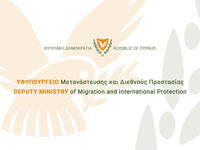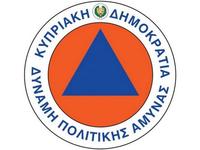Press Releases

20-03-2021 18:16
Common Statement of the Inter-Ministerial Meeting MED5, Athens 19-20 March 2021
We, the Ministers of the Interior and Migration of Cyprus, Italy, Malta, Spain and Greece, were gathered in Athens on March 19-20, 2021, to thoroughly discuss the various elements of the proposed Pact on Migration and Asylum and further consolidate our negotiating position.
Six months after the official launch of the negotiation on a new European Pact on Migration and Asylum and following several common position papers from our countries, our principal concerns remain. We continue to observe considerable imbalances in the proposed legislative texts which are still far from being fully governed by the “principle of solidarity and fair sharing of responsibility”, as laid out in art. 80 TFEU. In this respect, we repeat our strong plea in favour of a needed true balance between solidarity and responsibility, as in its current format the Pact does not provide sufficient reassurances to the front-line Member States.
We are aware of the complexity of the issues in question, and we appreciate the commitment of the European Commission, as well as of the previous and current Presidencies of Germany and Portugal, to constructively work with all Member States with the ambition to find fair and sustainable solutions.
In this spirit, today we are reaffirming our positions, as follows:
- Only by increasing cooperation with origin and transit countries will we be able to prevent primary and secondary movements, migrant smuggling and trafficking and loss of lives, as well as to promote effective returns. Support needs to be ensured for third countries at our external borders in building their capacities in migration management, fight against trafficking and smuggling (in line with the 2020 EU-Africa Ministerial Conference on countering smuggling, hosted by Italy), border control and asylum.
- We welcome the Presidency’s initiative for intensifying our work with North African States, and the Team Europe Initiative launched by Spain together with the Commission for the Atlantic route countries. We also need to prioritise our cooperation with the Silk Route countries and the Sahel region. Furthermore, we should seek to establish a closer dialogue with neighbouring countries along the Eastern Mediterranean and Western Balkan route, while ensuring that the 2016 EU-Turkey Joint Statement is fully and consistently implemented in its entirety by both the EU and Turkey, towards all Member States indiscriminately under clear conditionality and monitoring.
- At the same time, we must remain focused on our resolve to effectively control the EU’s external borders, supported by FRONTEX when needed. The emphasis should be placed on border management, through enhanced surveillance in origin and prevention of illegal crossings, not border procedures.
- The Pact focuses prescriptively on the responsibilities of front-line Member States that are already exposed to disproportionate pressures, while the solidarity mechanism remains uncertain as far as the actual adoption of the implementing acts by the Commission is concerned, and voluntary as regards relocation.
- While we welcome the recognition of the specificity of disembarkations after search and rescue operations, we must guarantee effective European solidarity with regard to all migrants and asylum seekers irrespective of the way they have reached EU territory, having in mind the need for an automatic and mandatory relocation mechanism to be put in place.
- The already disadvantageous situation of the front-line Μember States will be further aggravated due to the proposed screening Regulation and the mandatory character of the projected border, asylum and return procedures. We believe that solutions based on the “fictio juris” assumption that asylum seekers have not entered the EU until the completion of the process, disregard realities on the ground in terms of procedures and timelines proposed and place disproportionate burden at the borders of the EU which cannot be transformed into closed transit zones.
- Furthermore, it is important for all Member States, but especially for the front-line ones, to establish a centrally managed European return mechanism, coordinated by the Commission and supported by relevant EU agencies, such as FRONTEX, aiming at facilitating returns upon request of the affected Member States.
- The return sponsorship proposal is innovative and may be useful within the broader framework of a European return policy. However, the sponsorship mechanism is by itself insufficient to achieve rapid and effective returns, both due to its procedural complexity and because the system would not work without a robust common European returns mechanism. Moreover, front-line Member States would still have to cope with a large number of returnees until the completion of the process within the proposed eight months period. Therefore, we believe that an overall simplified procedure would improve its effectiveness as a supporting tool.
- Finally, since the proposals by the Commission are inextricably linked from a legal, practical and not least political point of view, each of them should be negotiated hand in hand with the others, in order to ensure coherence across them, in the spirit of “nothing is agreed until everything is agreed”.
We remain committed to work on finding viable and coordinated solutions to our common challenges, building on the positive elements of the proposed Pact. The front-line Member States cannot be expected to manage the migratory pressure which affects the European Union as a whole.
We thank Greece for having kindly hosted this first Ministerial Meeting of the Med-5 group in Athens and we stand ready to intensify our coordination as we believe that no feasible agreement can be reached without the consent of the Member States that carry the heaviest burden.
Relevant Press Releases






